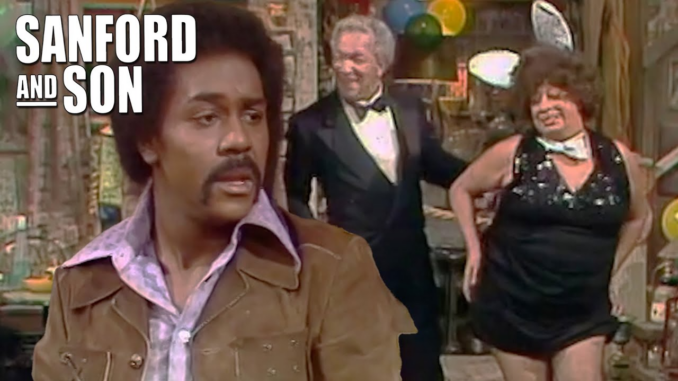
How ‘Sanford and Son’ Changed the Television Landscape
When Sanford and Son premiered on January 14, 1972, it didn’t just introduce audiences to the hilarious antics of Fred and Lamont Sanford; it also marked a significant turning point in television history. This groundbreaking sitcom not only entertained millions but also broke barriers and set new standards for representation and storytelling in comedy. Let’s dive into how Sanford and Son changed the television landscape forever.
The Birth of a Cultural Icon
A New Kind of Sitcom
Sanford and Son was created by Norman Lear and Bud Yorkin, who were known for their innovative approach to television. The show was based on the British series Steptoe and Son, but it adapted the concept to reflect the American experience, particularly the African American experience.
Setting the Scene
Set in a junkyard in Los Angeles, the show followed the lives of Fred Sanford, played by Redd Foxx, and his son Lamont, portrayed by Demond Wilson. Their interactions were filled with humor, sarcasm, and a touch of heart, making them relatable to viewers from all walks of life.
Breaking Racial Barriers
A Predominantly Black Cast
One of the most significant aspects of Sanford and Son was its predominantly Black cast. At a time when television was largely dominated by white actors, this show provided a platform for African American talent. It showcased the complexities of Black life in America, breaking stereotypes and offering a more nuanced portrayal of its characters.
Cultural Representation
The show tackled issues such as poverty, race relations, and family dynamics, all while maintaining a comedic edge. By addressing these topics, Sanford and Son opened the door for future shows to explore similar themes, paving the way for a more diverse representation in television.
The Comedic Genius of Redd Foxx
A Stand-Up Legend
Redd Foxx was already a well-known stand-up comedian before taking on the role of Fred Sanford. His comedy was characterized by its raw, unfiltered humor, often touching on sensitive topics. Foxx’s unique comedic style brought a fresh perspective to television, making him a perfect fit for the role.
Transforming Television Comedy
Foxx’s portrayal of Fred Sanford was groundbreaking. He infused the character with a blend of humor and heart, making Fred a relatable and lovable figure. His ability to tackle serious issues with humor set a new standard for sitcoms, influencing countless comedians and actors who followed.
The Father-Son Dynamic
A Relatable Relationship
The relationship between Fred and Lamont was at the heart of the show. Their banter, filled with love and sarcasm, reflected the complexities of family dynamics. Viewers could relate to their struggles, making the characters feel like real people rather than just fictional creations.
Memorable Moments
From Fred’s hilarious one-liners to Lamont’s eye-rolling reactions, the duo created countless memorable moments that fans still cherish today. Their chemistry was undeniable, and it contributed significantly to the show’s popularity.
The Show’s Enduring Popularity
Re-runs and Streaming
Even decades after its original run, Sanford and Son remains popular through re-runs and streaming platforms. The show’s humor and relatable characters continue to resonate with new generations of viewers.
Influence on Future Comedians
Redd Foxx’s success on Sanford and Son has influenced countless comedians who followed in his footsteps. His ability to blend humor with social commentary has inspired a new generation of performers to tackle important issues through comedy.
The Impact on Future Sitcoms
Setting New Standards
Sanford and Son paved the way for future sitcoms that featured diverse casts and tackled social issues. Its success opened doors for shows like The Jeffersons, Good Times, and many others that followed in its footsteps.
A Template for Success
The show’s blend of humor, heart, and social commentary became a template for successful sitcoms. Writers and producers began to recognize the value of addressing real-life issues while still providing entertainment, leading to a new era of television comedy.
